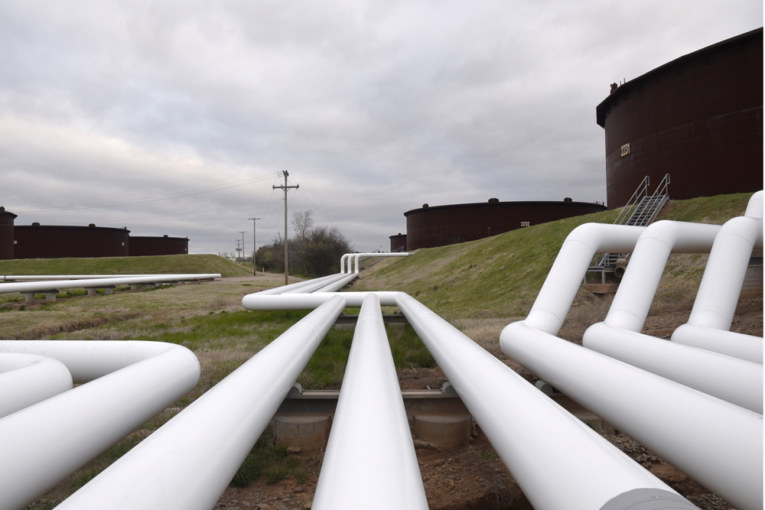
CALGARY – Canadian heavy oil prices plunged to a new low on Friday that could force domestic oilsands sector to shut in production to survive the historic collapse, according to a new report from Wood Mackenzie.
The price of Western Canada Select, the domestic heavy oil benchmark, followed up a brutal 30 per cent plunge on Thursday with another 28 per cent fall on Friday to reach US$4.58 per barrel — just a fraction of other price benchmarks.
The global Brent benchmark fell 7 per cent in midday trading to US$24.39 per barrel, while the North American benchmark West Texas Intermediate fell 5 per cent to US$21.46 per barrel.
Energy research firm Wood Mackenzie believes higher cost oil-producing formations around the world would need to shut in production amid the oil price rout, unlike in 2014 when sub US$35 per barrel Brent oil prices lasted for only one quarter.
These prices are well below the break-even cost for the Canadian oilsands producers, which risks posting massive losses this year as low prices persist.
“Canada’s oilsands are at the upper end of the (cost) curve, even in a benign price environment,” said Fraser McKay, vice-president, upstream at Wood Mackenzie, in a report released Friday.
He noted that if the Brent crude oil benchmark averages US$35 per barrel over the course of 2020, “we would expect corporate cash flow from the sector to be US$17 billion in the red,” and the Alberta government would also forego $2 billion in royalties.
Canada’s oilsands are at the upper end of the (cost) curve, even in a benign price environment
Fraser McKay
While the costs are high, McKay noted that it’s difficult to shut in or suspend oilsands operations as steam-based producers are concerned that letting a formation go cold would damage the reservoirs.
“The sector will do everything it can to trim costs first,” he said.
Wood Mackenzie isn’t the only firm predicting oil production cuts in Canada.
On Monday, Rystad Energy warned that oil production cuts in Canada “are imminent as storage is days away from full capacity.”
The Oslo, Norway-based firm predicted that Canadian oil producers would cut 440,000 bpd of production as oil storage tanks in Alberta are reaching their peak capacity of 40 million barrels of storage.

However, Canadian oil producers also have access to their own storage, including storage tanks at their own operations in the oilsands, IHS Markit vice-president, North American crude oil markets Kevin Birn said in an interview.
In reality, he said, when field storage and merchant storage is counted together, Alberta is capable of storing 80 million to 85 million barrels of oil.
However, he said, inventories are high everywhere and are believed to be between 65 million and 70 million barrels in storage.
“Canada is full. We were full going into this. But the reality is that Canadian producers will store in the United States,” Birn said, noting that some Canadian oil companies are moving their barrels to storage in the U.S., where there is more space available.
Some of the largest oilsands producers, such as Suncor Energy Inc. and Athabasca Oil Corp., have been forced to react to benchmark crudes hitting historic lows, and have limited or shut down operations.
About 125,000 barrels a day of production is currently shut-in and nearly all oilsands operations are underwater, which “will likely trigger additional production shut-ins,” TD Securities said in a note.
“We are expecting most operators to revert to some form of dynamic storage for in-situ projects in order to defer bitumen sales while simultaneously maintaining reservoir integrity,” TD said.
Currently, Canadian heavy crude now costs less than the price paid by a company with long-term contracts to ship it down Enbridge Inc.’s Mainline and Flanagan South systems to Texas.
That’s a problem for producers such as Cenovus Energy Inc., which has commitments to ship 75,000 barrels a day down the system. MEG Energy Corp., another heavy oil producer, has contracts to ship 50,000 barrels a day and has plans to expand to 100,000 barrels a day in the second half of 2020.
Enbridge charges between about US$7 to a little over US$9 a barrel to ship heavy oil to Texas, excluding additional charges such as for power, according to tariff documents. Cenovus declined to comment and MEG didn’t return an email for comment.
The S&P/TSX Capped Energy Index was down 8.65 per cent on Friday, taking its year-to-date decline to nearly 65 per cent.
Financial Post
• Email: [email protected] | Twitter: geoffreymorgan
With files from Bloomberg News
You can read more of the news on source
